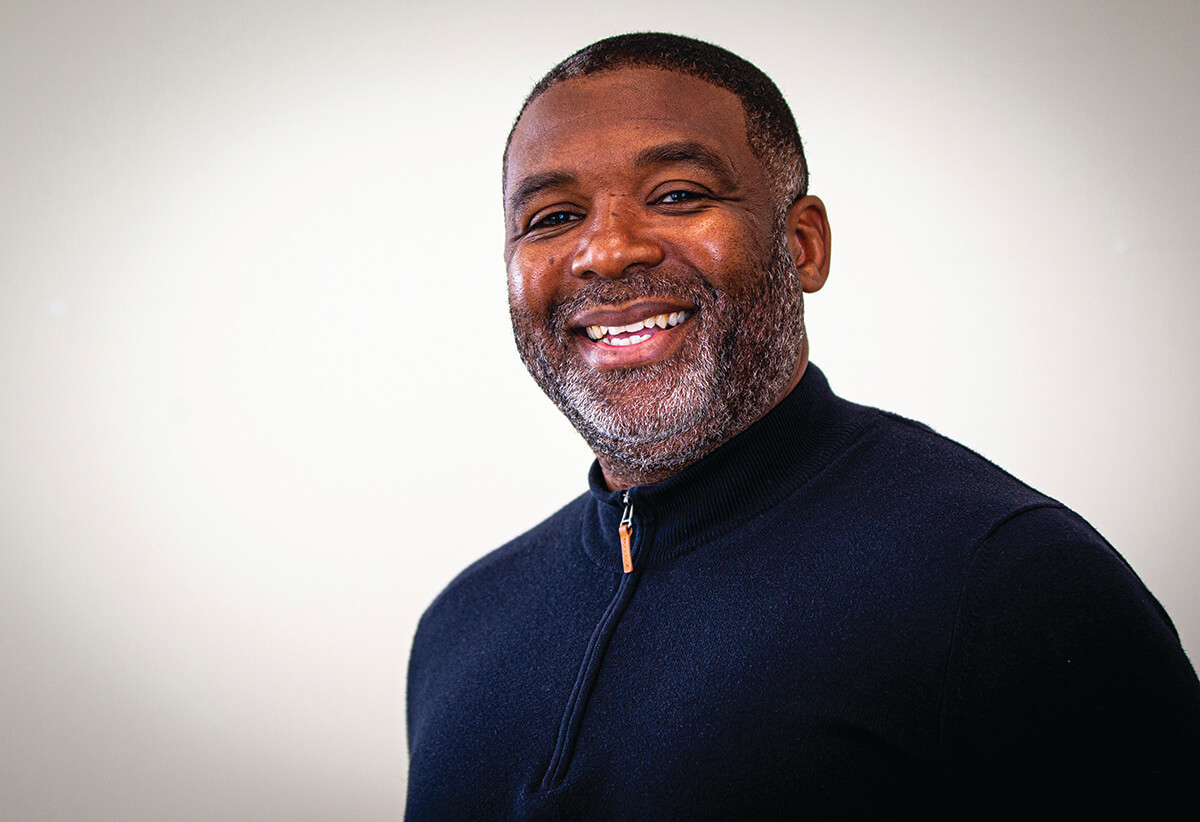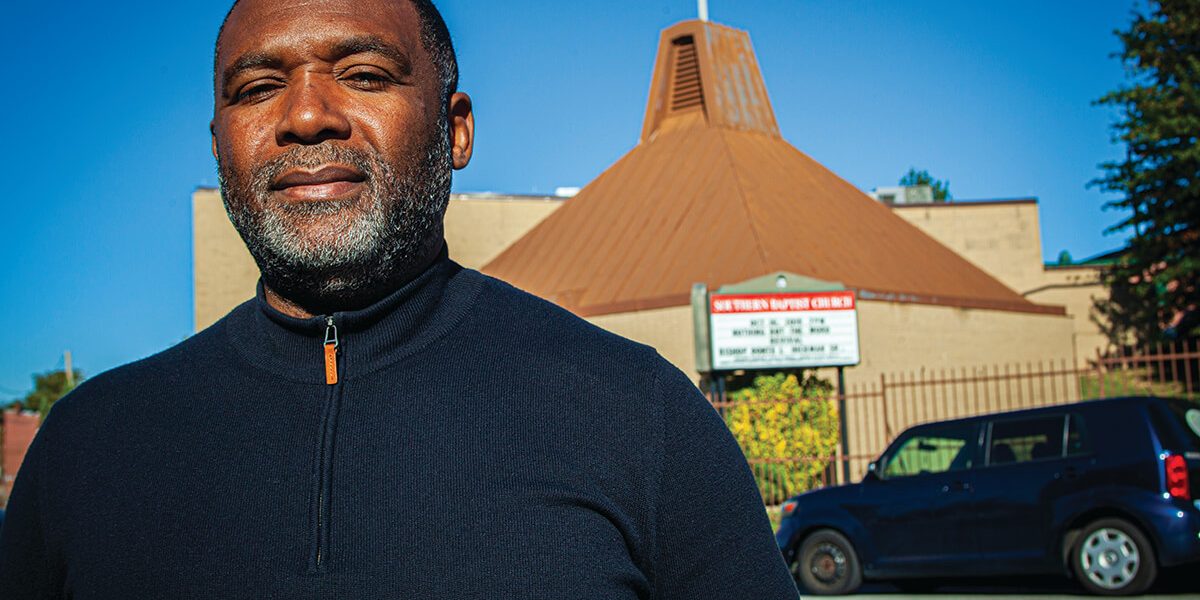GameChangers
Q&A with Donté L. Hickman, Sr.
We sit down with the pastor of Southern Baptist Church.
Is a troubled teenager from an impoverished Baltimore neighbor- hood who was expelled from three different high schools doomed to fail- ure? Bishop Donté L. Hickman Sr. would argue that he’s not.
He should know: That describes Hickman’s early life in the late 1980s. But after a judge gave him probation instead of incarceration, he embraced the opportunities that people in his community were pushing him toward, re- turned to his family’s church, got his diploma, and enrolled in Wiley College in Marshall, Texas, where he earned a bachelor of arts degree.
Now, as pastor of the Southern Baptist Church in Baltimore’s Broadway East neighborhood—with additional congregations in Harford and Howard counties—the 48-year-old married father of two sons is trying to deliver opportunities for people in distressed urban centers.

You invited President Trump to Baltimore in 2018, before Trump’s verbal attack on the city, and then you were invited to the White House in 2019, after his attack, though you did not go. Are you still glad you extended the invitation?
Absolutely. I am keenly aware and focused on what communities like ours need. We need the intentional investment of the federal government and others to enable the transformation that we envision. I don’t care if there’s a Republican or Democratic administration. The administration and the legislators should be held accountable for the deplorable situations that our communities are in.
President Trump has demonstrated that he has some interest in providing the needed resources to make the change happen. So, I want to hold him accountable to that. It should have been done under previous presidents. But it has not.
I know Baltimore. Baltimore will fight you when you are changing things. Baltimore will fight you for taking a stand on what you believe in. Baltimore will fight you when you have principles, but they will celebrate you when you come through and they realize later that maybe you were right.
What are Baltimore’s most dire issues?
Neglect in the inner-city communities, and a part of that neglect is causing population deterioration. It’s poverty where people are not employable. Soft-skill development is not there, behavioral and mental health issues abound. Our educational facilities are sorely dilapidated.
People are internally, psychologically, and emotionally broken down and we have to restore people as we rebuild properties. I’m a model of that transformation—you can come from a distressed community, family, or dysfunctional situation and you can turn it around when you identify purpose and when there are resources that enable you to do so.
The challenges are multi-faceted. Yale University did a study that determined that in order to create health in urban communities like this, you have to impact nutrition and wellness, education, afford- able housing, workforce opportunities, and transportation.
Where will the money come from to address these problems?
I’ve been studying modern monetary theory and I think that the government has to create the money, print the paper, and create more public spending than private lending.
The government has given too much authority to banks to be able to loan money and create interest from literally nothing. We’re not backed by gold standards any longer. The deficits that people talk about really aren’t there. We are dealing with economies that are outdated.
They tell us that if we create money, we’ll create inflation. But there are ways that we can deal with that particular issue.
What our church—through our community development corporation—has been doing is trying to maximize all of the resources that are available, such as tax credits, opportunity-zone investments, and leveraging commercial investment throughout the community.
We can have success with some of these things, but it’s a competition among so many other communities with the same problems and there is only so much funding in the pot.
Where is Baltimore going to be in the next 10 to 20 years?
I am the forever optimist. I believe our community in the next 10 years will be a demonstration of transformation, a beacon of hope. I believe what we are doing can change that whole trajectory. I’m a voice crying in the wilderness. There are other voices crying in the wilderness and if I have anything to do with the future, the next 10 to 20 years will be bright.
